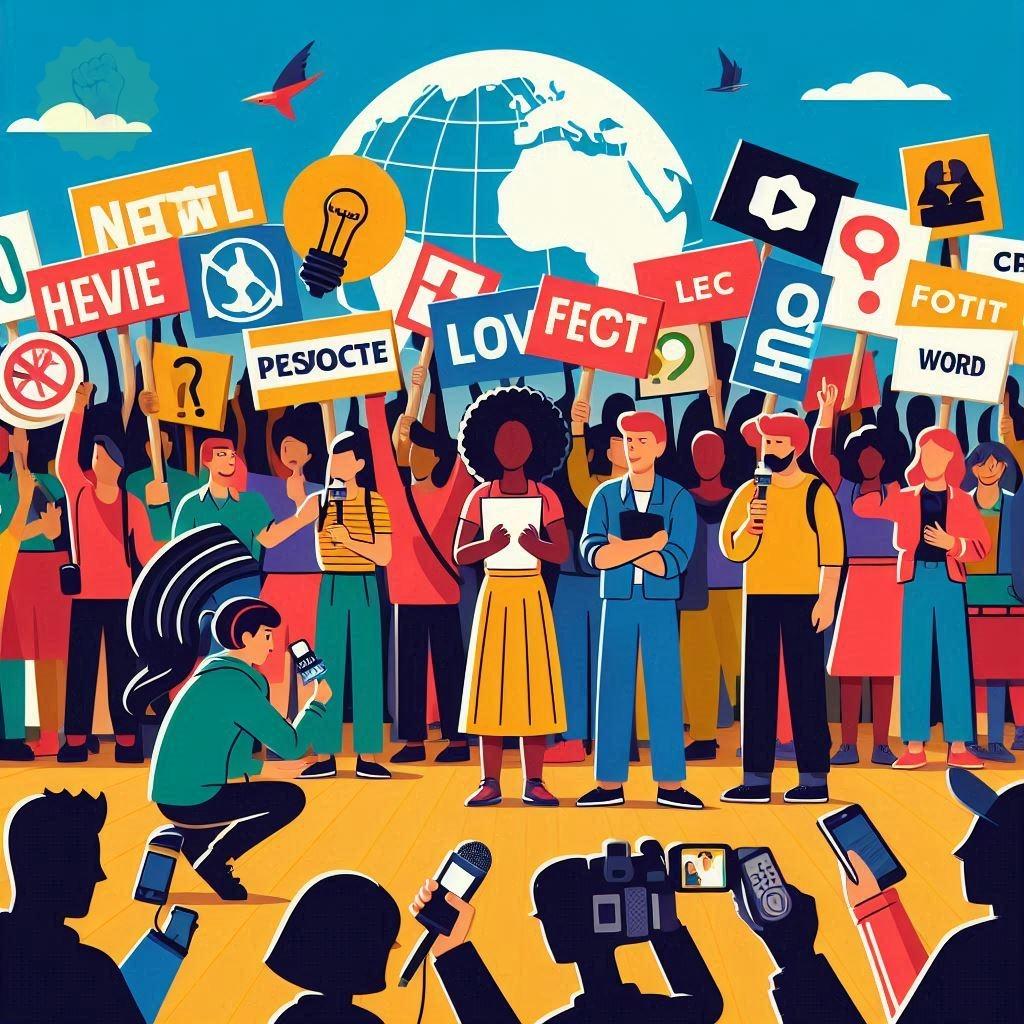The Role of Reporters in Social Justice Movements!
Reporters play a crucial role in shaping public perception and understanding of social justice issues. Their coverage not only informs the public but also mobilizes communities and advocates for change. Here’s an examination of how reporters have contributed to social justice movements:
1. Investigative Reporting:
Investigative journalists delve deep into social justice issues, uncovering systemic injustices, corruption, and abuses of power. Through thorough research and fact-checking, they bring to light stories that might otherwise remain hidden.
2. Amplifying Marginalized Voices:
Reporters have the responsibility to amplify the voices of marginalized communities who often lack representation in mainstream media. By giving these groups a platform, journalists can highlight their struggles and achievements.
3. Documenting Protests and Movements:
On-the-ground coverage of protests, rallies, and movements is vital for raising awareness about social justice issues. Reporters capture the emotions, motivations, and demands of protesters, conveying the urgency of their causes to a broader audience
4. Engaging in Advocacy Journalism:
Some reporters actively engage in advocacy journalism, where they not only report on issues but also take a stand on them. This can include writing opinion pieces, creating campaigns, or collaborating with activists.
5. Utilizing Multimedia Storytelling:
Modern journalism increasingly uses multimedia formats to tell stories about social justice. Videos, podcasts, and social media allow for a more dynamic representation of issues, reaching diverse audiences.
6. Following Up on Stories:
Reporters can contribute to social justice movements by following up on previous stories, highlighting progress or setbacks. This continuous coverage keeps issues in the public eye and holds institutions accountable.
The role of reporters in social justice movements is multifaceted and essential. Through investigative reporting, amplifying marginalized voices, documenting movements, engaging in advocacy, utilizing multimedia storytelling, and providing ongoing coverage, reporters contribute significantly to raising awareness and advocating for change. Their work not only informs the public but also inspires action, fostering a more just and equitable society.
#Bharat Aawaz
Reporters play a crucial role in shaping public perception and understanding of social justice issues. Their coverage not only informs the public but also mobilizes communities and advocates for change. Here’s an examination of how reporters have contributed to social justice movements:
1. Investigative Reporting:
Investigative journalists delve deep into social justice issues, uncovering systemic injustices, corruption, and abuses of power. Through thorough research and fact-checking, they bring to light stories that might otherwise remain hidden.
2. Amplifying Marginalized Voices:
Reporters have the responsibility to amplify the voices of marginalized communities who often lack representation in mainstream media. By giving these groups a platform, journalists can highlight their struggles and achievements.
3. Documenting Protests and Movements:
On-the-ground coverage of protests, rallies, and movements is vital for raising awareness about social justice issues. Reporters capture the emotions, motivations, and demands of protesters, conveying the urgency of their causes to a broader audience
4. Engaging in Advocacy Journalism:
Some reporters actively engage in advocacy journalism, where they not only report on issues but also take a stand on them. This can include writing opinion pieces, creating campaigns, or collaborating with activists.
5. Utilizing Multimedia Storytelling:
Modern journalism increasingly uses multimedia formats to tell stories about social justice. Videos, podcasts, and social media allow for a more dynamic representation of issues, reaching diverse audiences.
6. Following Up on Stories:
Reporters can contribute to social justice movements by following up on previous stories, highlighting progress or setbacks. This continuous coverage keeps issues in the public eye and holds institutions accountable.
The role of reporters in social justice movements is multifaceted and essential. Through investigative reporting, amplifying marginalized voices, documenting movements, engaging in advocacy, utilizing multimedia storytelling, and providing ongoing coverage, reporters contribute significantly to raising awareness and advocating for change. Their work not only informs the public but also inspires action, fostering a more just and equitable society.
#Bharat Aawaz
The Role of Reporters in Social Justice Movements!
Reporters play a crucial role in shaping public perception and understanding of social justice issues. Their coverage not only informs the public but also mobilizes communities and advocates for change. Here’s an examination of how reporters have contributed to social justice movements:
1. Investigative Reporting:
Investigative journalists delve deep into social justice issues, uncovering systemic injustices, corruption, and abuses of power. Through thorough research and fact-checking, they bring to light stories that might otherwise remain hidden.
2. Amplifying Marginalized Voices:
Reporters have the responsibility to amplify the voices of marginalized communities who often lack representation in mainstream media. By giving these groups a platform, journalists can highlight their struggles and achievements.
3. Documenting Protests and Movements:
On-the-ground coverage of protests, rallies, and movements is vital for raising awareness about social justice issues. Reporters capture the emotions, motivations, and demands of protesters, conveying the urgency of their causes to a broader audience
4. Engaging in Advocacy Journalism:
Some reporters actively engage in advocacy journalism, where they not only report on issues but also take a stand on them. This can include writing opinion pieces, creating campaigns, or collaborating with activists.
5. Utilizing Multimedia Storytelling:
Modern journalism increasingly uses multimedia formats to tell stories about social justice. Videos, podcasts, and social media allow for a more dynamic representation of issues, reaching diverse audiences.
6. Following Up on Stories:
Reporters can contribute to social justice movements by following up on previous stories, highlighting progress or setbacks. This continuous coverage keeps issues in the public eye and holds institutions accountable.
The role of reporters in social justice movements is multifaceted and essential. Through investigative reporting, amplifying marginalized voices, documenting movements, engaging in advocacy, utilizing multimedia storytelling, and providing ongoing coverage, reporters contribute significantly to raising awareness and advocating for change. Their work not only informs the public but also inspires action, fostering a more just and equitable society.
#Bharat Aawaz
0 Comments
0 Shares
2K Views
0 Reviews




